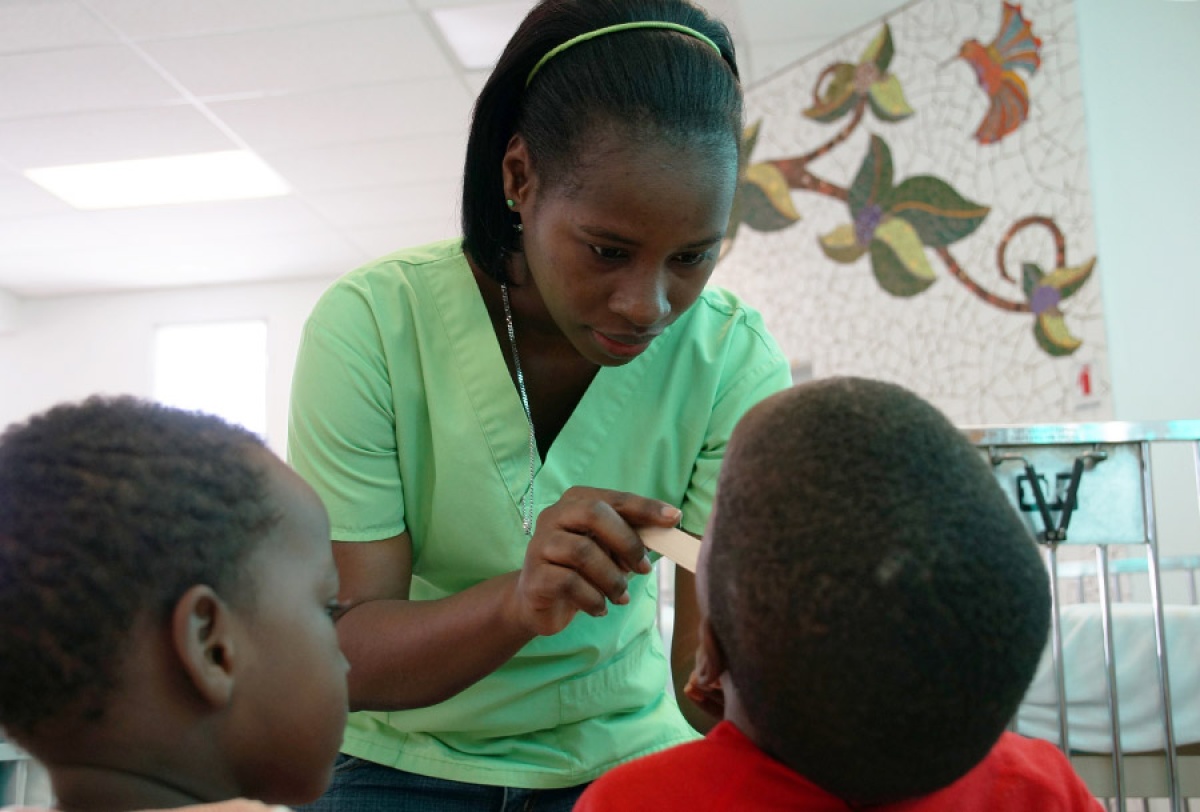Haiti's Next Generation of Doctors Reflect
Posted on Jan 16, 2015

This week marks five years since an earthquake devastated much of Haiti. In the years that followed, Partners In Health, our Haitian sister organization Zanmi Lasante, and many partners built University Hospital, a 300-bed teaching hospital located in the country’s Central Plateau. As a teaching facility, University Hospital is home to dozens of Haitian medical residents who are advancing their skills in pediatrics, internal medicine, general surgery, obstetrics and gynecology, emergency medicine, and nurse anesthesia.
Below, two second-year residents, Dr. Ketly Altenor, who is specializing in pediatrics, and Dr. Mariline Menager, who is specializing in internal medicine, share their thoughts about working in University Hospital and discuss the challenges and successes they have encountered along the way.
Dr. Ketly Altenor
What does University Hospital represent to you five years after the earthquake?
After the earthquake, everything was very difficult. Hospitals didn’t really have the capacity to respond to the needs of the population. With University Hospital, which is offering good health care for free, people who are poor now have more opportunities. For me the construction of the hospital is a concrete action that came from the aid Haiti recieved.
At the same time, University Hospital offers training for young doctors like me so that we can become great specialists and continue serving our population.
What’s the most important thing you learned in the residency program?
Since starting the program last year, I have learned how to work in a team. There weren’t a lot of residents, but there was a lot of work to be done. Because we worked as a team, we had a great year and helped many, many patients.
What are the most challenging aspects of your job? What gives you inspiration and hope?
What is most difficult for me is educating parents and having them understand that it’s important for them to come to the hospital early with their children. It’s always hard to see a child come to the hospital too late, especially knowing that the child could have been saved if they had arrived earlier.
I find hope every time a child arrives in critical condition, and we treat them, and then I see them with a smile on their lips and in good health. It gives me strength to continue.
Dr. Mariline Menager
What does University Hospital represent to you five years after the earthquake?
For me University Hospital is a symbol that reconstruction in this country is possible. I think it was the most important project that has happened in terms of infrastructure. The hospital is hope for a population that doesn’t have money, who need health care. It’s an opportunity for a lot of young doctors like myself to continue our career path as physicians in good conditions.
I learned to better understand the importance of giving each individual patient health care with compassion, dignity, and respect.
What’s the most important thing you learned in the residency program?
During my residency at University Hospital, one of the most important thing I learned was to approach each patient as a whole person, not just an illness, and to integrate the patients’ daily life challenges into the planning of their health care. I learned to better understand the importance of giving each individual patient health care with compassion, dignity, and respect.
What are the most challenging aspects of your job? What gives you inspiration and hope?
For me the most difficult part of my job is giving many patients care, and making sure that each patient receives high-quality care according to their illness. It’s hard to get patients to understand their health, and to educate them about illnesses because they often have alternative beliefs. My inspiration is when every patient leaves the hospital on two feet after having come in with little hope. This makes me know what I am doing is important and that I am where I am supposed to be. I am working with those who need help the most.

